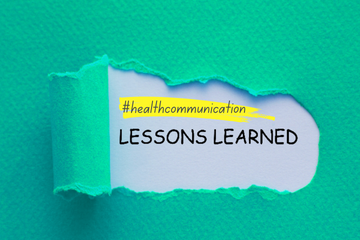Putting Disordered Eating at the Center of Public Health Discourse
Ellen Feldberg Gordon’s gift accelerates research on a little-understood affliction
Not only does Ellen Feldberg Gordon understand eating disorders from a personal point of view—she, her mother, and her daughter all struggled with disordered eating—she also has made treatment of the disease central to her work as a psychotherapist. Gordon’s engagement goes beyond her professional work. Through a renewed investment in the Harvard Chan School’s Strategic Training Initiative for the Prevention of Eating Disorders (STRIPED), she is also helping accelerate research focused on the prevention and root causes of eating disorders.
STRIPED applies an interdisciplinary approach to its research, bringing together public health experts, clinicians, economists, lawyers, and advocates to tackle body-image issues and eating disorders holistically. For example, the research incubator recently produced a report in collaboration with the Academy for Eating Disorders and the accounting firm Deloitte on the social and economic toll of eating disorders. STRIPED researchers have also studied the impact of the entertainment, beauty, and weight-loss industries and advocated for social media and advertising regulation.
Gordon made her first philanthropic gift to STRIPED in 2009, drawn by its focus on prevention. After seeing the impact of that support, she recently renewed and expanded her support to include an additional, generous gift to advance and accelerate the work. The new funding will allow STRIPED to sustain its innovative research efforts and put the group’s findings into practice through new instruction modules and training. Gordon hopes this new funding will also help put eating disorders and behaviors at the center of public health discourse.
“Ellen’s vision and faith in STRIPED from the beginning, and her continued generous support, have made it possible for us to build a public health incubator that is now the model, both domestically and globally, for what a uniquely public health approach to eating-disorders-prevention research and training should be,” says S. Bryn Austin, professor of social and behavioral sciences and STRIPED’s director. “We have been fortunate to garner much additional support from philanthropic, foundation, and government sources that are following Ellen’s lead to make our work possible. All that STRIPED is today can be traced back to Ellen’s original vision and generosity.”
It is both Gordon’s and Austin’s hope that STRIPED’s work will continue to advance knowledge and discussion of eating disorders in the public health realm and help prepare educators, parents, practitioners, and others to work on these issues with young women and men.
“I feel like I bear a responsibility to continue to support the program because of its importance in the field of eating disorders,” Gordon says. “I’m hopeful that my support inspires others to give and commit—that’s been the impetus for my ongoing contributions.”


